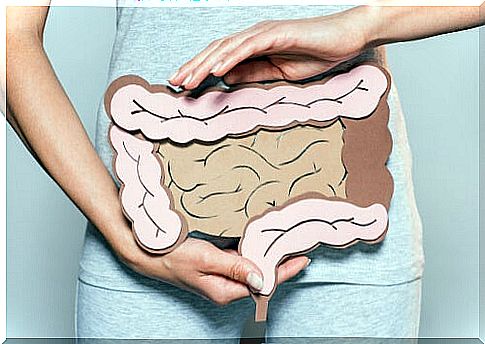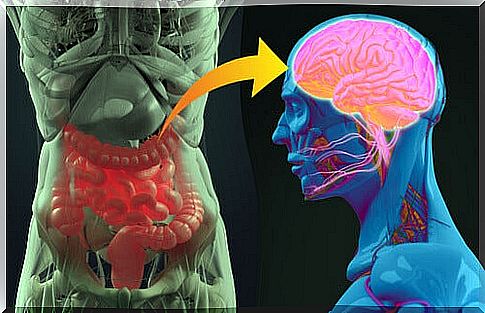Mental Digestion: Key In Intestinal Problems

The digestive system is one of those that reacts more easily to emotional states. It is not uncommon for someone to be overly impressed and vomit or feel nervous and have a stomach ache. For this reason, and in the face of the widespread problem of slow intestinal transit, it has begun to speak of mental digestion.
Today, we know that there is a very close connection between the gut – its health and function – and the brain. It is not uncommon to refer to the gut as “the second brain.” The intestine is the only organ in the body that functions completely independently, that is, it does not need permission from the brain to do what it does.
The intestine obeys the enteric nervous system (ENS), which is a derivation of the autonomic system. It has its own neural circuits, but it communicates with the brain through the sympathetic and parasympathetic systems. This complex structure makes the mind and digestion have a special connection, hence the talk of mental digestion.

Mental digestion
A very close relationship has been detected between how thoughts and emotions are digested and how food is digested. It is very frequent that the experiences not assimilated mentally end up being reflected in a greater difficulty to assimilate properly the food. It could be said that good intestinal digestion also depends on good mental digestion.
At the same time, the opposite process occurs: digestive problems end up visibly altering our mood. This is largely due to the fact that 90% of serotonin is processed in the digestive system, while only 10% is processed in the brain.
Remember that serotonin is a neurotransmitter that has important effects on our mood. A high level of serotonin supposes a state of happiness; a low level, a depressed mood.
As you can see, there is a clear connection between mental digestion and food digestion. The one influences the other and they determine each other.
Constipation and mental digestion
One of the problems most associated with poor mental digestion is constipation. It is interpreted as a sign that there are ideas, emotions or experiences from the past that are “blocked. ” What happens in this case is that a person clings to that situation and refuses to let go.
It is very common for people with constipation to spend a long time thinking about something from yesterday, without getting rid of it. It can be a belief, a goal, a wound, some material object.
The point is that this returns over and over again, with no progress being made. Therefore, it can be said that constipation is typical of those who tend to obsess.
Sometimes constipation is also related to unspoken words. The person has stopped expressing what he thinks or feels out of fear or convenience, but the silence begins to become a self-punishment that results in this digestive problem. This evil is also very common in those who always want to accumulate more due to unfounded fears about the future.

Diarrhea and emotions
Australian gut health specialist Dr Megan Rossi notes that one of the first factors she sees in patients with gut problems is their stress level.
She also points out that one of the prescriptions for those who come to her for digestive problems is to do 10 or 15 minutes of meditation a day. This ends up having very beneficial effects on your health.
Diarrhea is associated with the sudden rejection of an idea or feeling that has been experienced or a decision that has already been made. The mind reacts by trying to expel this as soon as possible and in the body it is reflected as a constant evacuation. In other words, improper mental digestion ends up being reflected in poor intestinal digestion.
Diarrhea, mentally and physically, is the opposite of constipation. In this case, there is a desire to quickly discard something because it generates rejection and guilt. The person does not want, cannot or does not know how to accept that part of himself, which ends up expressing himself in a physiological way.
For all the above, it is worth paying a little more attention to our digestive symptoms. Often they can be the representation of some emotional distress. It is about exploring and identifying what it is that we cannot assimilate … and then make a proper mental digestion.









